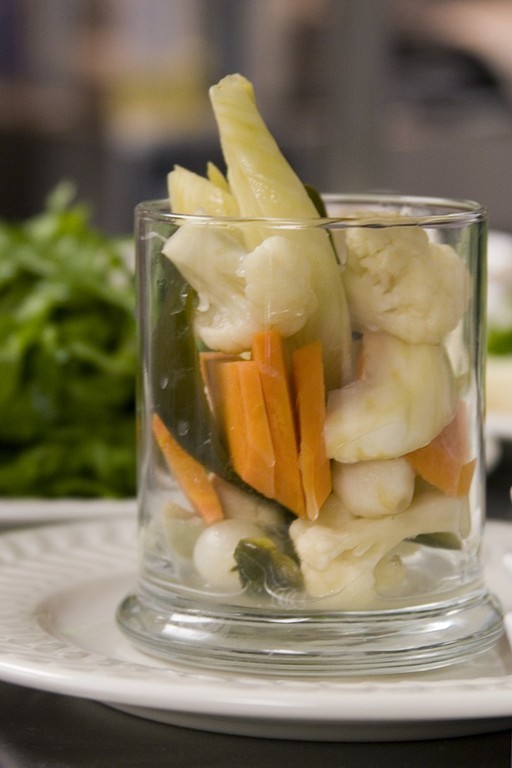
If Local 121 were “just any other restaurant,” said Tree Callanan, “I wouldn’t have become involved.” But Local 121, which opened last month in AS220’s mixed-use Hotel Dreyfus building at 121 Washington St., has a special mission.
While most food establishments get their supplies from major distributors that truck it across the country, Local 121 – named to reference its address and mission – is committed to getting all its supplies from local farmers and vendors.
“Local farmers are important ecologically, economically and environmentally,” said Callanan, the restaurant’s project manager of events and marketing. “It all makes sense.”
AS220 approached Josh Miller about opening a restaurant because he was a friend and shared the nonprofit’s commitment to downtown and the community. “The focus of Local 121 is an extension of that,” said Miller, who also owns the Trinity Brewhouse and co-owns the Hot Club.
Local 121 is not the only restaurant buying locally, said Dale Venturini, president and CEO of the Rhode Island Hospitality & Tourism Association, though “Josh is ahead of the curve by doing it all at once.”
Other Providence restaurants working with local growers include Taqueria Pacifica, Red Fez, New Rivers and Gracie’s. “And it is only going to continue,” Venturini said, “because as consumers become more sophisticated, they are going to demand to know where products come from.”
Buying locally, however, is a change from the current industry standard.
“The food industry was developed for central distribution systems like Restaurant Depot and Sysco,” says Sheri Griffin, market coordinator and development director of Farm Fresh Rhode Island, a nonprofit that is helping farmers connect with consumers and businesses.
“Maybe the last 30 years has been an aberration,” Griffin added, “and we are going back to a model from 100 years ago.”
The website FarmFreshRI.org offers information on local farmers’ markets and community-supported agriculture programs and a search engine to help businesses find specific items. The local connection has many benefits, Griffin said.
“I know my farmers, I know what they are growing, and I know there is not a cow pasture nearby, so my spinach won’t have E.coli bacteria,” said Griffin. “It is wonderful to look your farmer in the eye and have these conversations.”
But while ordering from a major distributor is simple, “if you are picking out local produce and products,” Griffin said, “you have to make several phone calls and establish several different relationships.”
Callanan agreed that there’s an additional challenge.
Julia Moore, executive chef of Local 121, came up with a solution: hiring a “forager.”
Dana Berge, a recent graduate of Brown University, acts as the liaison between the restaurant and the farms, helping to identify regional sources of food, local sellers and organic food suppliers, and helping with the internal “greening” of the restaurant.
“We wanted to start with good systems and practices in place,” Berge said, by keeping waste down to a minimum, establishing a recycling and compost routine, locating bio-friendly food containers, and initiating a reusable-lunch-box program for takeout.
Berge said that while planning a seasonal menu and finding local vendors is more challenging, it isn’t really that tough.
“Working with as many local businesses as possible is not reinventing the wheel,” Berge said. “We don’t have to go out and find someone selling fair-trade coffee because New Harvest has already established themselves as the local seller. We get bread from Seven Stars Bakery and Olga’s. Our eggs and milk come from Rhody Fresh, the greens from Red Planet, and our chicken from Baffoni Farms in Cumberland.”
While Local 121 is built on this concept, Venturini said the Hospitality & Tourism Association wants more restaurants to adopt similar practices. Through an upcoming program developed in conjunction with the R.I. Department of Environmental Management, she said, the group will be “encouraging restaurant, hospitality and other service industries to look at how they can transition into greener practices.”










